Current News
/ArcaMax
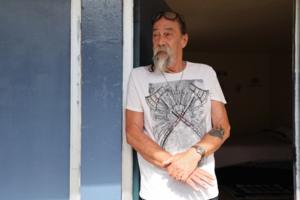
'No Buddy Left Behind': New program has veterans help homeless veterans in Orlando
ORLANDO, Fla. — Jarold Walters was outside a gas station trying to figure out how he was going to eat and where he was going to sleep when a man wearing a “Go Army” lanyard approached and asked if he was a veteran.
Navy, said Walters, who served during the Gulf War.
I can help you, Michael Bailey said.
“I told him, I don’t believe ...Read more
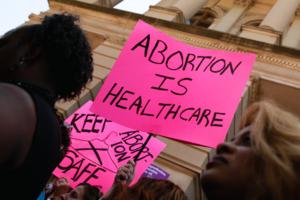
Alabama can't prosecute groups helping patients get abortions elsewhere, judge rules
Reproductive rights groups in Alabama wasted no time resuming their work after a federal judge ruled in early April that the state’s attorney general can’t prosecute — or threaten to prosecute — people or organizations who help Alabama residents seek an abortion by traveling to another state.
One of the plaintiffs, the reproductive ...Read more
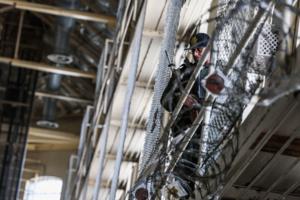
Life after California's death row: What happens when condemned inmates get a second chance
SAN FRANCISCO — By age 46, Bob Williams had spent more than half his life in isolation, waiting to die on San Quentin's death row.
Williams was 18 when he raped and murdered 40-year-old Mary Breck at her Kern County home in October 1994. The day before, he had broken into Breck's home and stolen her credit cards. He returned — initially ...Read more

A court ruling roils South Korea's presidential election
SEOUL, South Korea — As South Koreans prepare to elect a successor to ousted former president Yoon Suk Yeol, a court ruling against front-runner Lee Jae-myung has thrust the country — which has been under interim leadership for the last five months — into further uncertainty.
Yoon, who was impeached for declaring martial law in December, ...Read more
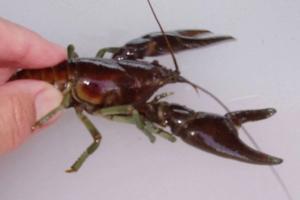
Rusty crayfish, an 'aquatic nuisance,' discovered in northern Colorado river
DENVER — Rusty crayfish, an aquatic nuisance and an invasive species, has been discovered in a Larimer County river south of Estes Park, according to Colorado Parks and Wildlife.
This is the first time the crayfish has been confirmed in the agency’s northeast region and the second time it’s been found east of the Continental Divide in ...Read more

California's primary care shortage persists despite ambitious moves to close gap
Sumana Reddy, a primary care physician, struggles on thin financial margins to run Acacia Family Medical Group, the small independent practice she founded 27 years ago in Salinas, California, a predominantly Latino city in an agricultural valley often called “the salad bowl of the world.”
Reddy can’t match the salaries offered by larger ...Read more
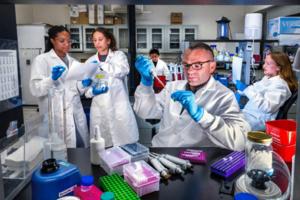
'Landmark study' led by UNLV shows new path to treat, prevent autism
LAS VEGAS — A UNLV-led study has discovered a new molecular path that leads to autism, potentially opening the way for more intervention in the future.
The study by Łukasz Sznajder, a UNLV chemistry and biochemistry professor, was published on April 21 in the journal Nature Neuroscience.
It found that a gene that causes myotonic dystrophy �...Read more

As reading scores fall, states turn to phonics -- but not without a fight
As states rush to address falling literacy scores, a new kind of education debate in state legislatures is taking hold: not whether reading instruction needs fixing, but how to fix it.
More than a dozen states have enacted laws banning public school educators from teaching youngsters to read using an approach that’s been popular for decades. ...Read more
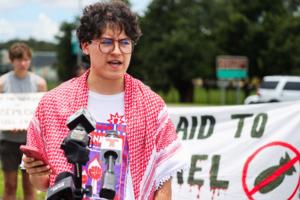
A Florida student lost his visa over protests. Here's what it was like
TAMPA, Fla. -- Joseph Charry said he didn’t come to the University of South Florida to protest.
But the Colombian student’s role in pro-Palestine protests last spring led him to temporarily lose his visa and return home, an experience thousands of international students across the country are now facing for an array of reasons from protests...Read more
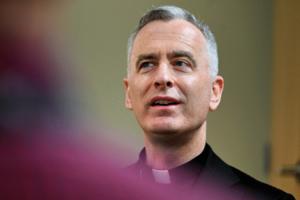
The Camden Diocese will no longer oppose a statewide investigation of clergy sex abuse, new bishop says
The new bishop of Camden said Monday that his diocese would no longer oppose a statewide investigation of sex abuse by clergy — a stunning reversal after the diocese had spent years arguing in sealed court documents that the probe proposed by the New Jersey Attorney General's Office should not be allowed to move forward.
In an interview, ...Read more

Jury selection begins in Diddy's sex trafficking trial in NYC. What we know
Jury selection for the federal criminal trial of Sean “Diddy” Combs began on Monday morning in New York. The high-profile defendant has been behind bars for eight months awaiting trial for charges including racketeering, transportation to engage in prostitution, sex trafficking, as well as an additional charge of forced labor against ...Read more

Santa Clara County, SF join lawsuit against Trump's 'unlawful' conditions on homelessness funds
Santa Clara County and San Francisco, along with seven other local governments, are asking a federal judge to block the U.S. Department of Housing and Urban Development from placing “unlawful” conditions on federal funds — stipulations that could put millions of dollars to address homelessness at risk.
The lawsuit, which is being led by ...Read more
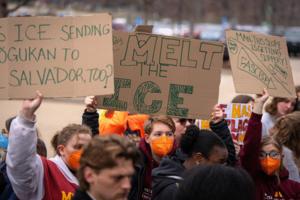
Judge says Minnesota student can't be deported, but Department of Homeland Security files appeal
An immigration judge has terminated the deportation case against Doğukan Günaydin, the University of Minnesota student who was arrested in late March, although he is expected to remain in custody as the federal government appeals the decision.
Immigration Judge Sarah Mazzie filed the ruling on Thursday. It came days after U.S. federal court ...Read more
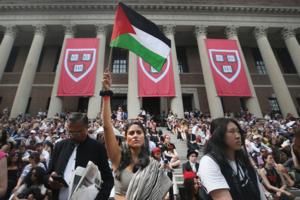
Trump blocks Harvard from new research funding in latest blow
The Trump administration is declaring Harvard University ineligible for new research grants from the federal government in the latest escalation between the White House and the Ivy League school.
Education Secretary Linda McMahon sent the university a letter warning that access to additional federal funding would not be possible until “they ...Read more
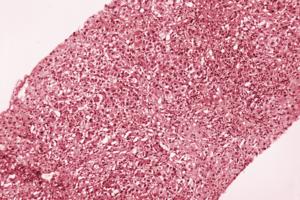
Hepatitis A outbreak declared in L.A. County. 'We really have to get ahead of this'
Los Angeles County has declared a communitywide outbreak of hepatitis A, a highly contagious viral disease that can lead to lasting liver damage or even death.
Although cases of hepatitis A are nothing new in the region, health officials are now expressing alarm both at the prevalence of the disease and who is becoming infected.
The total of ...Read more
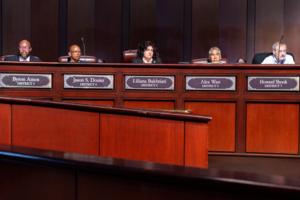
ks // 'We have to stop': Atlanta Council urges state patrol to curb high-speed chases
ATLANTA — The Atlanta City Council on Monday took its most forceful steps yet to try to curb high-speed pursuits involving the Georgia State Patrol, weeks after a chase led to a crash that killed a 19-year-old bystander in Little Five Points.
The council unanimously approved a resolution urging the state to amend GSP’s pursuit policy to ...Read more
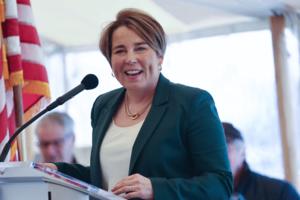
Mass. Gov. Maura Healey, five other governors invite Canadian premiers to Boston to talk Trump tariffs
Massachusetts Gov. Maura Healey and five other northeastern governors invited Canadian premiers to Boston to discuss the impacts of President Donald Trump’s tariffs and how the two countries can maintain “strong trade relations that benefit local businesses and residents,” Healey’s office said Monday.
The potential future gathering, ...Read more

Here's what the Trump administration proposes spending on Washington's toxic Hanford nuclear site
TACOMA, Wash. — The Trump administration showed support for environmental cleanup at Hanford in its initial proposal for fiscal 2026 funding, calling for a much higher annual budget than it did during Trump’s previous term as president.
The support for Hanford came as elsewhere in the proposed budget the Trump administration wants a $163 ...Read more
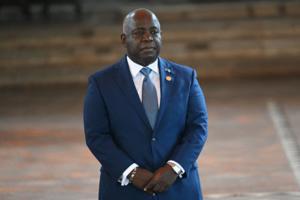
Leaked contract shows how Cuba pockets money Bahamas pays for medical services
The Bahamian government appears to have signed off on a contract that directs most of the money paid for the services of four Cuban health professionals to a Cuban government entity while giving away its legal authority on key issues to the communist-ruled island, according to a copy obtained by a group monitoring Havana’s medical missions ...Read more
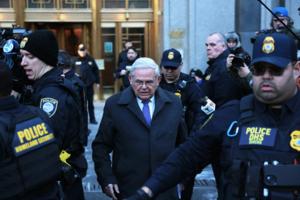
N.J. Attorney General wants Bob Menendez barred from office for life
The New Jersey Attorney General's Office asked a state judge on Monday to declare that former U.S. Sen. Bob Menendez is barred for life from seeking public office following his bribery conviction.
Menendez was sentenced in January to 11 years in prison for taking illegal gifts and advancing the Egyptian government's interests. Following his ...Read more
Popular Stories
- Nearly quarter of people on long-acting opioids develop addiction
- The Camden Diocese will no longer oppose a statewide investigation of clergy sex abuse, new bishop says
- 'It's in a chaotic state': Virginia food banks feel the effects of federal funding cuts
- Federal judge orders North Carolina to certify Riggs as winner in Supreme Court election
- No new trial for white supremacist convicted in plot to disrupt Baltimore power grid





